Romance and Revisions: The Outlaw of Torn by Edgar Rice Burroughs
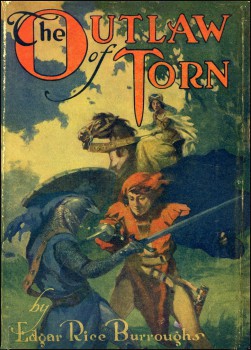 “Not since Arthur of Silures kept his round table hath ridden forth upon English soil so true a knight as Norman of Torn.” –Joan de Tany
“Not since Arthur of Silures kept his round table hath ridden forth upon English soil so true a knight as Norman of Torn.” –Joan de Tany
“I am very doubtful about the story. The plot is excellent, but I think you worked it out all together too hurriedly.” –Thomas Newell Metcalf, letter to Edgar Rice Burroughs, 19 December 1911
“I am not prone to be prejudiced in favor of my own stuff, in fact it all sounds like rot to me…” –Edgar Rice Burroughs, letter to Metcalf, 14 March 2012
In Irwin Porges’s groundbreaking and Chartres Cathedral-sized biography, Edgar Rice Burroughs: The Man Who Created Tarzan (Brigham Young University Press, 1975), only two of ERB’s books have solo chapters dedicated to them: Tarzan of the Apes, of course — and The Outlaw of Torn.
Unless you are a hardheaded Burroughs devotee, I’ll wager a ducat you have never crossed paths with the title The Outlaw of Torn. Considering that chronologically it is squashed between his two most famous books, A Princess of Mars and Tarzan of the Apes, it makes sense that The Outlaw of Torn gets overlooked. That it belongs to the genre of Medieval Romance, a mite mustier than high Martian adventure or swinging times in the African rainforest, compounds the issue.
But this Middle Ages adventure deserves the primacy that Porges awarded it. Burroughs’s second novel taught him hard truths about the business of writing and what he was capable of. ERB was one of the first writer-businessmen; the long labor getting his second book to work and sell schooled him in the reality of making a living as an author of popular adventure.
The Outlaw of Torn also turned out, after all the toil put into it, a flat work manufactured too obviously as a copy of earlier romances. Burroughs thought highly of the book, and in 1927 wrote to his publisher: “I think it is the best thing I ever wrote, with the possible exception of Tarzan of the Apes, and next to it, I believe will rank The War Chief of the Apaches.” But instead of embracing further stories in this style, Burroughs turned and ran for the jungle with his next outing. A lesson learned, even if he could not admit it years later.
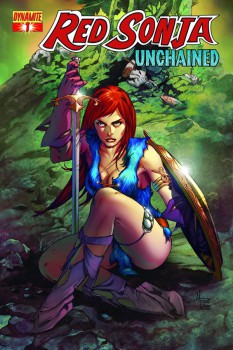
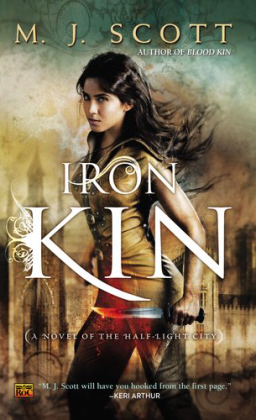

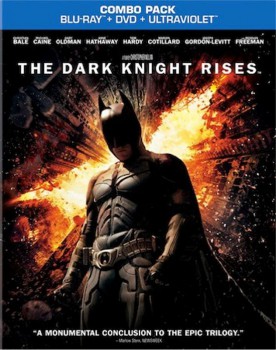
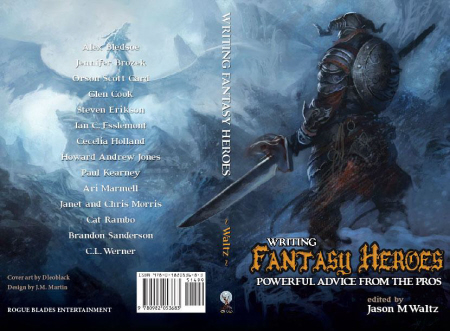
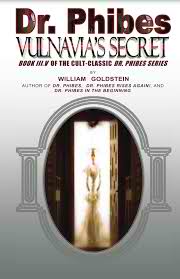
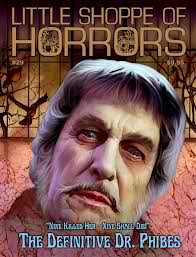
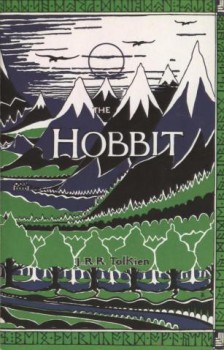
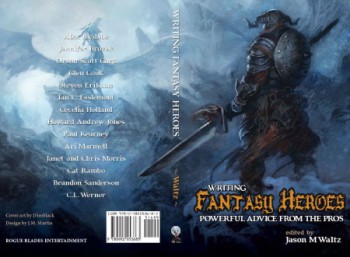
 One of the strangest and most distinctive elements of a super-hero is a secret identity. It’s so distinctive we don’t even think about how strange it is. Or, more precisely, how strange the heroic identity is. There’ve been disguises and alter-egos throughout fiction, whether Odysseus showing up at his home incognito before killing his wife’s suitors, or the heroines of Shakespearean comedy dressing up as men and taking male names, or Sherlock Holmes ferreting out clues while masquerading as a humble old book-seller or opium addict. But the super-hero identity, in its classic form, is less a person than an idea: a being known by a code-name, who does not pretend to be a specific person, but instead wears a mask or cloak, and who exists only for one reason — usually to defend against some injustice, to right wrongs, or generally to fight crime. The super-hero identity is not a person or a personality; it’s the idea of a person, the dream of an identity. Much has been written about the symbolic presentation of masculinity the dual identity implies, a weak or nerdy exterior hiding a powerful secret persona. It’s interesting, then, that the idea seems to have been created by a woman.
One of the strangest and most distinctive elements of a super-hero is a secret identity. It’s so distinctive we don’t even think about how strange it is. Or, more precisely, how strange the heroic identity is. There’ve been disguises and alter-egos throughout fiction, whether Odysseus showing up at his home incognito before killing his wife’s suitors, or the heroines of Shakespearean comedy dressing up as men and taking male names, or Sherlock Holmes ferreting out clues while masquerading as a humble old book-seller or opium addict. But the super-hero identity, in its classic form, is less a person than an idea: a being known by a code-name, who does not pretend to be a specific person, but instead wears a mask or cloak, and who exists only for one reason — usually to defend against some injustice, to right wrongs, or generally to fight crime. The super-hero identity is not a person or a personality; it’s the idea of a person, the dream of an identity. Much has been written about the symbolic presentation of masculinity the dual identity implies, a weak or nerdy exterior hiding a powerful secret persona. It’s interesting, then, that the idea seems to have been created by a woman.